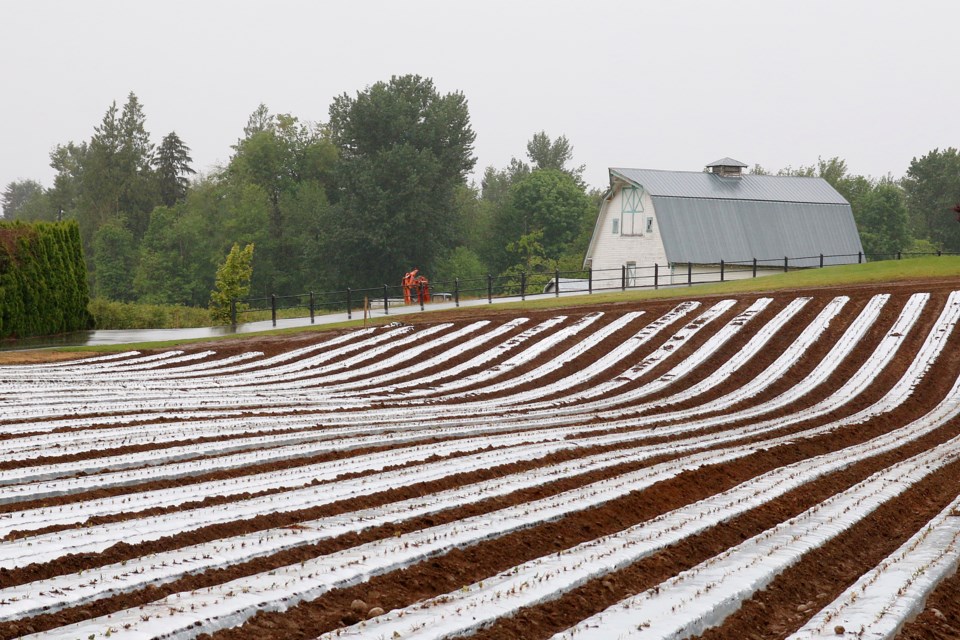The sudden closure of the BC Tree Fruits Cooperative has blindsided farmers as British Columbia sinks into a food crisis of declining production and rising prices. This is partly a result of forces outside our control, including global politics and climate disruption, but other drivers of this crisis sit firmly with the province.
The agrifood industry in B.C. is mired in red tape and suffering from decades of neglect from Victoria and Ottawa alike. We are seeing the consequences of this inaction, but it isn’t too late to turn things around. Looking toward the upcoming provincial election, it is time that we call each of B.C.’s political parties to outline their food and agricultural policies, and we must demand that they commit to immediately implementing certain basic reforms.
As food processors are fleeing the province, farmers are seeing their livelihoods become increasingly precarious. The closure of the BC Tree Fruit Cooperative is just the latest blow, challenging farmers who rely on the co-operative to process and distribute their crops, and further narrowing the pathways to B.C. consumers. To increase food security and create resilience in the face of climate disruptions, B.C. must take immediate steps to increase food production, diversify crops and safeguard farm incomes.
First, we must rebuild our processing, storage and distribution capacity in the province. Processing is allowed on the Agricultural Land Reserve (ALR), but restrictive regulations and red tape hinder new processing capacity. The BC Food Security Task Force argued for scrapping regulations that limit food processing on the ALR, but this change has been stalled in government. Without sufficient processing capacity, food cannot reach consumers, and revenues from crop productions—even successful harvests—cannot be guaranteed. As food producers and processors are giving up on navigating the outdated and restrictive rules in B.C., they are moving their operations to jurisdictions that have supportive policy regimes or offer government incentives. A good example is Alberta, where the potato industry is flourishing thanks to increased processing capacity and the opening of a new export facility by McCain Foods. Food processing is critical to the farm sector, a fact multiple governments have failed to address. Processing must be fast-tracked on the ALR if we are to save farming in B.C.
Second, we must fully commit to supporting controlled-environment agriculture. As the climate becomes less predictable and global politics remain unsettled, it is imperative that we build our capacity to grow food year-round, close to consumers. Controlled-environment agriculture encompasses a wide range of techniques, from using hoop houses to shelter field crops and extend the growing season, to building greenhouses and vertical agriculture operations that create eternal spring. B.C. is already experiencing an explosion of interest in indoor growing, thanks to positive provincial regulatory changes, industry support and plentiful green electricity. The provincial government could double down by simplifying access to processing for this new industry, removing municipal barriers to controlled-environment agriculture while empowering the vegetable marketing commission to fast-track new entrants and support innovation in the sector. Key players such as GoodLeaf have already chosen Alberta over B.C.
Third, we must do a larger overhaul of the food and farming system in B.C. The ALR has done an excellent job of preserving land, sometimes at the expense of the farmers and processors who feed us. In the Lower Mainland, we’ve sacrificed to protect half of the usable land base as ALR. However, half of that investment lies fallow, a number that’s growing both as farmers give up on production and as residential land uses sprawl further into rural areas. The easiest thing to do in the ALR is build a rural residential property that produces no food at all. A provincial government could double food production—or more—by slashing red tape for farmers, clearing municipal roadblocks that favour not-in-my-backyard-ism over farms, strengthening the Right to Farm Act and supporting a food system that is so desperately needed.
Lastly, the new provincial government must lobby Ottawa to ensure that climate action doesn’t come at the expense of food security. The federal government has imposed carbon taxes but now needs to pair them with carbon credits for activities that remove carbon from the atmosphere. Farmers capture and sink carbon into their fields each year, especially if they grow perennial crops or use regenerative practices. Although they don’t get any credit for their service to the planet, they most certainly pay taxes. The B.C. government could directly lower property taxes and hydro rates for producers, and if we can’t find a way to give credit where due, we need to remove the carbon tax for the food industry at the federal level.
B.C.’s farmers and food processors deserve better than to stumble from crisis to crisis, tangled in red tape, wondering if they have a future. B.C. consumers should be able to expect grocery shelves to be fully stocked with the best food products on earth—at reasonable and stable prices. Now, while political parties are vying for power in the upcoming election, it is time to demand that the next government finally deliver.
Dr. Lenore Newman is the director of the Food and Agriculture Institute at the University of the Fraser Valley.



